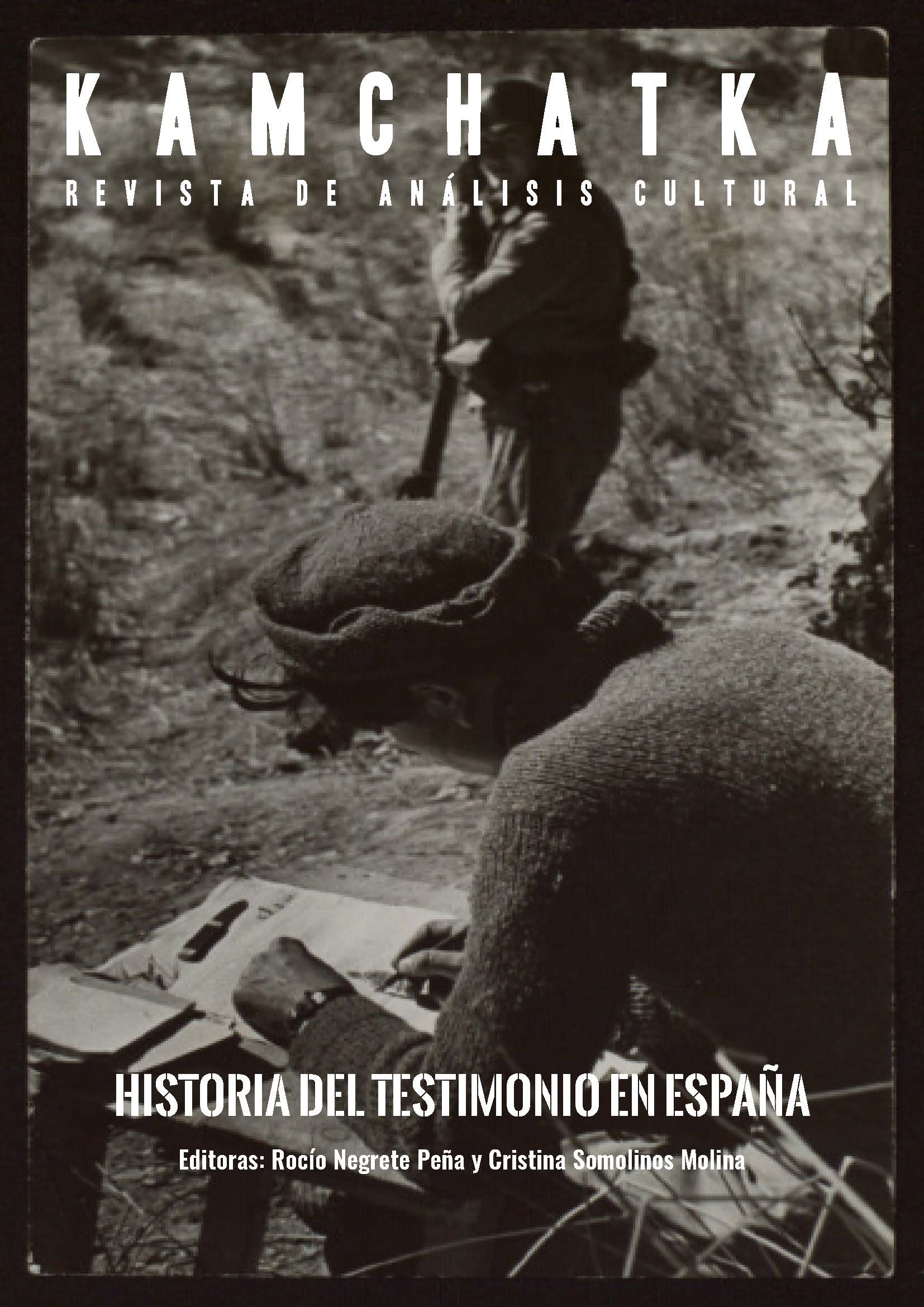Neocolonialism through the gaze of an exile: the representation of the mexican native in three short stories by Herrera Petere
DOI:
https://doi.org/10.7203/KAM.21.24568Keywords:
Neocolonalism, Exile, Herrera Petere, Lake, Emancipation Abstract
Abstract
Physically and ideologically displaced from postwar Spain, the committed voice of the 1939 exiles was heard in their host countries, the main sphere of action of these intellectuals. One of the countries that received and welcomed the most Spaniards was Mexico, a nation that encouraged a hopeful future for the new arrivals, but also grappled with economic dependence on the United States and the racial hierarchisation of its society. The inequalities arising from both situations can be seen as traces of older colonial relations, more refined and discreet, but still pernicious. This subalternity of the indigenous people was a feeling shared by the exiles, who also suffered the displacement and silencing imposed by Franco’s dictatorship. This identification would help writers such as Herrera Petere, in his stories “El indio enigmático y solo”, “A través del espejo” and “Juana de Dios”, to give power, words and protagonism to native Mexicans and to combat these practices of neocolonialism from their particular circumstance and their foreign gaze.
 Downloads
Downloads
 References
References
Álvarez Méndez, Natalia (2010). Palabras desencadenadas: aproximación a la teoría literaria postcolonial y a la escritura hispano-negroafricana. Zaragoza: Prensas Universitarias de Zaragoza.
Castro-Gómez, Santiago y Ramón Grosfoguel (eds.) (2007). “Prólogo. Giro decolonial, teoría crítica y pensamiento heterárquico”. El giro decolonial. Reflexiones para una diversidad epistémica más allá del capitalismo global. Bogotá: Siglo del Hombre Editores; Universidad Central; Instituto de Estudios Sociales Contemporáneos y Pontificia Universidad Javeriana; Instituto Pensar: 9-23.
Cuesta Bustillo, Josefina (coord.) (1999). Retornos (De exilios y migraciones). Madrid: Fundación Largo Caballero.
Fanon, Frantz (2009). Piel negra, máscaras blancas. Madrid: Akal.
Glondys, Olga (2017). “Regresos”. Balibrea, Mari Paz (coord.). Líneas de fuga: Hacía otra historiografía cultural del exilio republicano español. Madrid: Siglo xxi: 217-224.
Hernández, A. “Contrapunto mexicano. ¡Una ciudad se hunde!”. Ruta 345 (5 de mayo de 1952): 4.
Herrera Petere, José (2009a). “El indio enigmático y solo”. Martín Gijón, Mario (ed.). Obras completas. Narrativa II. Guadalajara: Ediciones Bornova; Diputación Provincial de Guadalajara: 217-224.
Herrera Petere, José (2009b). “A través del espejo”. Martín Gijón, Mario (ed.). Obras completas. Narrativa II. Guadalajara: Ediciones Bornova; Diputación Provincial de Guadalajara: 225-232.
Herrera Petere, José (2009c). “Juana de Dios”. Martín Gijón, Mario (ed.). Obras completas. Narrativa II. Guadalajara: Ediciones Bornova; Diputación Provincial de Guadalajara: 235-254.
Klor de Alva, Jorge. “Colonialism and Postcolonialism as (Latin) American Mirages”. Colonial Latin American Review 1 (1992): 3-23.
Martín Gijón, Mario (ed.) (2009). “Introducción: El lugar de José Herrera Petere en el exilio”. Obras completas. Narrativa II. Guadalajara: Ediciones Bornova; Diputación Provincial de Guadalajara: 9-70.
McLeod, John (2000). Beginning Poscolonialsm. Manchester y Nueva York: Manchester University Press.
Meriño Guzmán, Rodolfo. “Colonialismo, racismo y cuerpo: apuntes críticos desde Frantz Fanon”. Hermenéutica Intercultural 29 (2018): 119-135.
Pajuelo, Ramón. “Del ‘poscolonialismo’ al ‘posoccidentalismo’: una lectura desde la historicidad latinoamericana y andina”. Comentario Internacional 2 (2001): 113-131.
Rivera Cusicanqui, Silvia (2010). Ch’ixinakax utxiwa: una reflexión sobre prácticas y discursos descolonizadores. Buenos Aires: Tinta Limón.
Roessner, Michael. “Sobre la aplicabilidad de teorías ‘poscoloniales’ a las culturas centroeuropea y latinoamericana”. Revista Valenciana 2 (2008): 9-24.
Said, Edward W. (2008). Orientalismo. Barcelona: DeBolsillo.
Sarría Buil, Aránzazu (ed.) (2019). Retornos del exilio republicano español. Dilemas, experiencias y legados. Madrid: Ministerio de Justicia.
Spivak, Gayatri Chakravorty (2009). ¿Pueden hablar los subalternos? Ed. y trad. de Manuel Asensi Pérez. Barcelona: Museu d’Art Contemporani de Barcelona.
Tierno Tejera, Sofía. “La ciudad de México a través de cuatro cuentos”. Ogigia 9 (2011): 45-55.
Ugarte, Michael. “Max Aub y la mirada del ‘otro’ africano”. Anales de la literatura contemporánea 30 (2005): 513-524.
Valender, James. “Entre España y México, notas sobre un poema de Pedro Garfias”. Armas y Letras 59 (2007): 26-33.
Vega, María José (2003). Imperios de papel. Introducción a la crítica postcolonial. Barcelona: Crítica.
Zelaya Kolker, Mariaelena (1985). Testimonios americanos de los escritores transterrados de 1939. Madrid: Ediciones Cultura Hispánica; Instituto de Cooperación Iberoamericana.
Downloads
Published
How to Cite
-
Abstract737
-
Artículo PDF (Español)526
Issue
Section
License
This journal provides an immediate free access to the content on the principle that freely make investigation available to the public, which promotes an increased global knowledge exchange.
Unless otherwise indicated, texts published in this journal are under the license Attribution-NonComercial 4.0 by Creative Commons. These texts may be copied, distributed and publicly communicated whenever the publication’s author and title are quoted and whenever they are not used for commercial purposes. In any case, intellectual property of the articles and its potential economic rights entirely belong to its authors.
The full license can be consulted on https://creativecommons.org/licenses/by-nc/4.0/. We encourage authors to disseminate papers published in Kamchatka. Journal of cultural analysis electronically, in institutional digital repository or in their websites.





